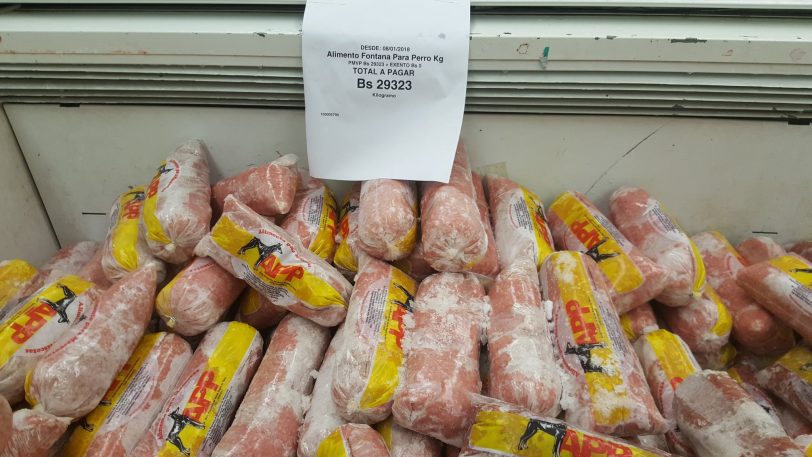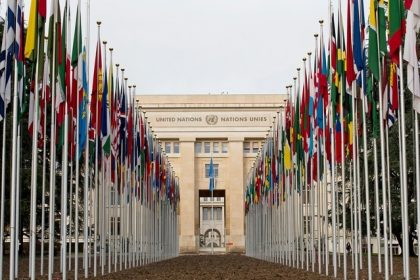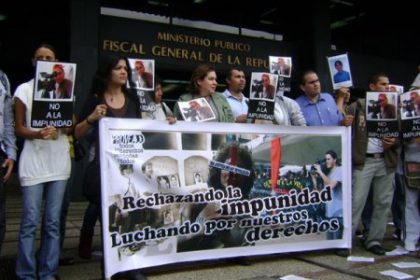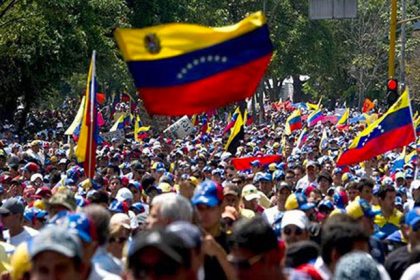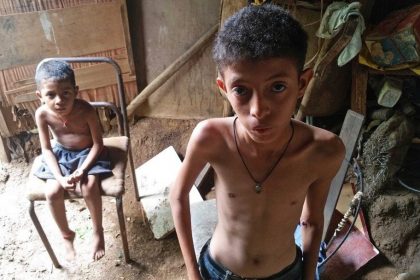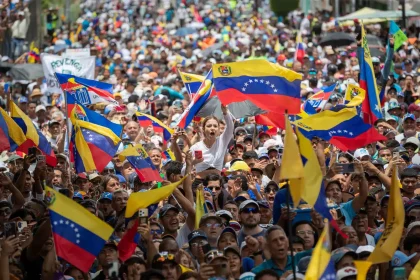Walking through different supermarkets in the capital city, Provea’s team members verified the complaint that, as a result of the economic crisis, Venezuelans buy food intended for animal consumption to be used for human ingest.
In several opportunities, it was found that many people took the so-called ‘dog sausages,’ whose content is made up of crushed chicken bones, mixed with other non-edible parts of the chicken, packaged as a sausage and sold frozen. Provea’s team managed to talk with some people who acquired the product, who confirmed they acquired and prepared it later for human consumption. According to the testimonies, they mixed it with scrambled egg or fried it to stir it with rice.
An article in the newspaper El Universal also registered the complaint on people consuming food intended for animals as a result of the crisis: “Buying and eating food for animals has become a common practice for many Venezuelans in the country. The lack of food and high costs of brands affect the lifestyle and eating habits of people. One of the main products for animals that people usually ingest is chopped rice because of its low cost and yielding capacity when eating, but this product is added dog sausages.”
According to the newspaper, these items can be harmful to health: “Dr. Manuel Hernández, Salud Miranda’s doctor, expressed through a website that in the case of chopped rice, the food does not meet the optimal health conditions, as it is a by-product and waste of rice that contains bacteria, which can fall to the ground and get contaminated with rodent urine contact in the production process.
Nutritionist Yazarenit Mercadante, of Fundación Bengoa, said that when buying chopped rice by weight, there is a greater risk of contracting a disease, since the product is not sealed and the handling and storage conditions are unknown.
Regarding to dog sausages, the nutritionist explained that these frozen tubes are made, mainly, with inedible parts of chicken (cartilage, skin, bones, feathers, etc.). In addition, it can be contaminated with different kinds of particles emanating from the animal, when it is not treated properly.”
In Provea’s opinion, Venezuelans consuming food intended for animals is a dramatic consequence of the violation of the right to food by the State if measures are not taken to ensure the population’s access to basic diet products, safely and at affordable prices. In this sense, inspections of supermarkets are arbitrary and insufficient measures to ensure food for Venezuelans.
Provea Press

